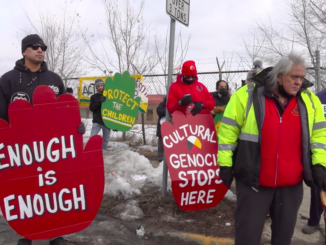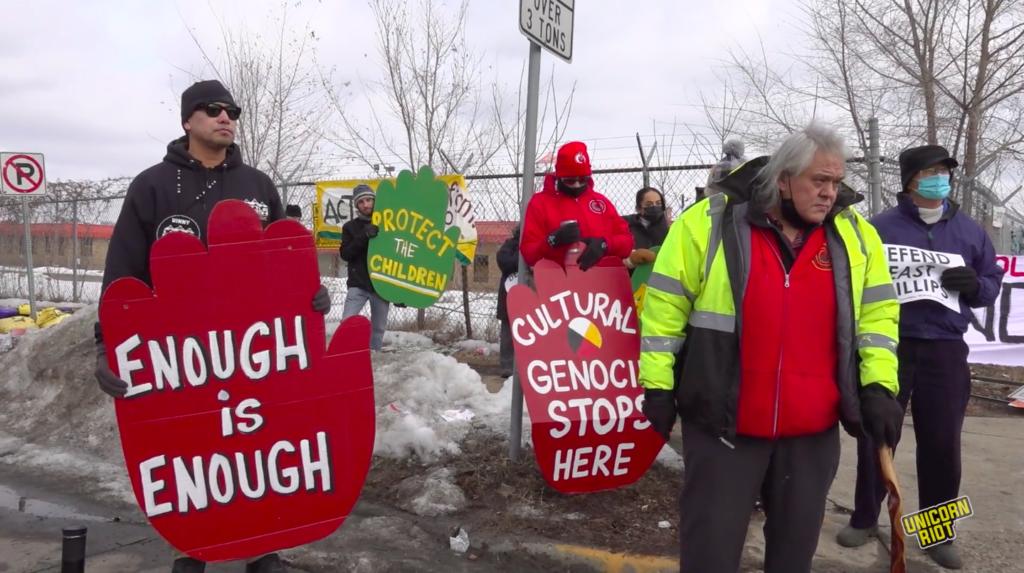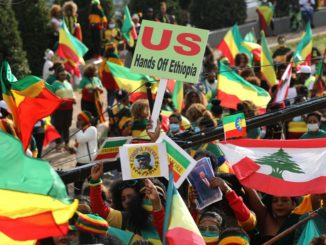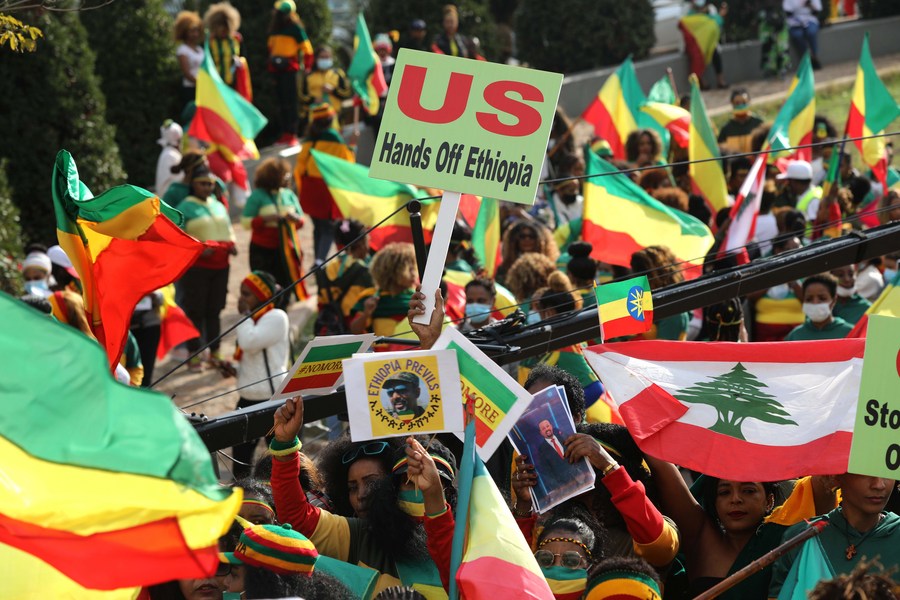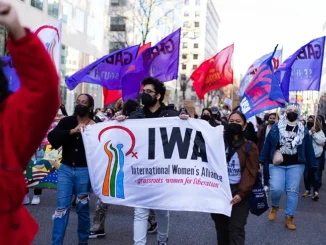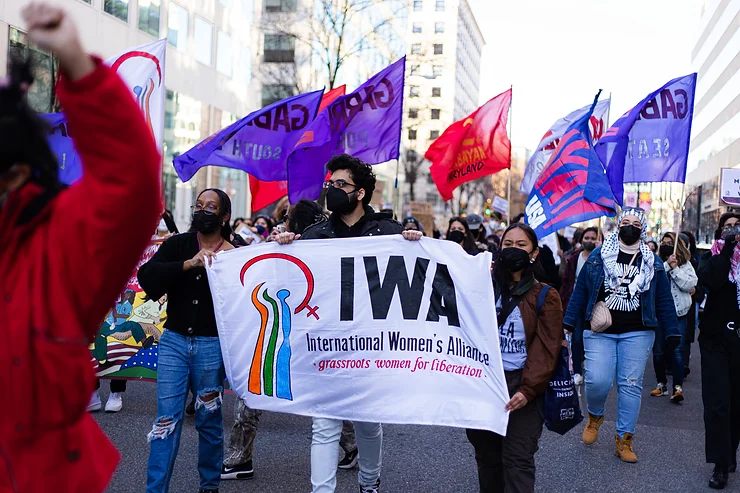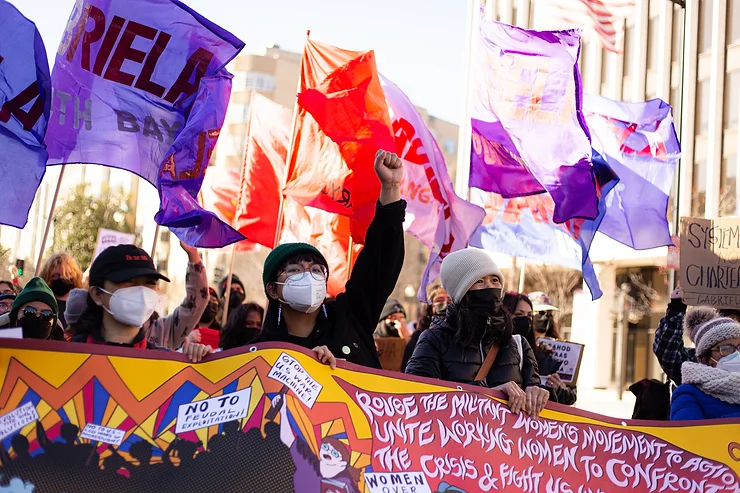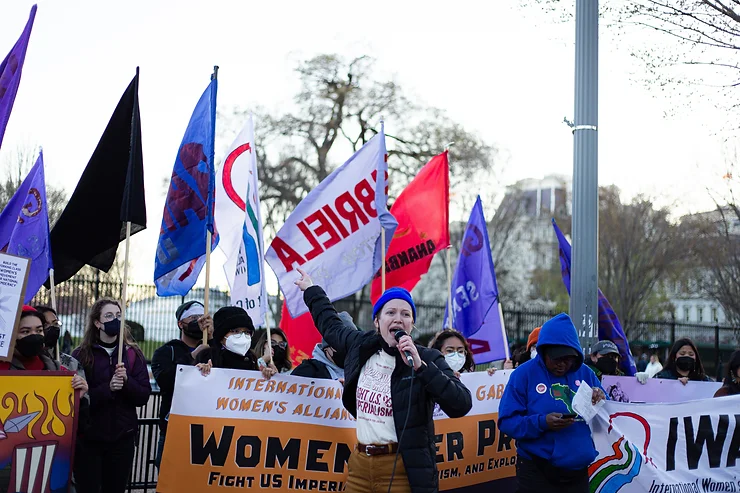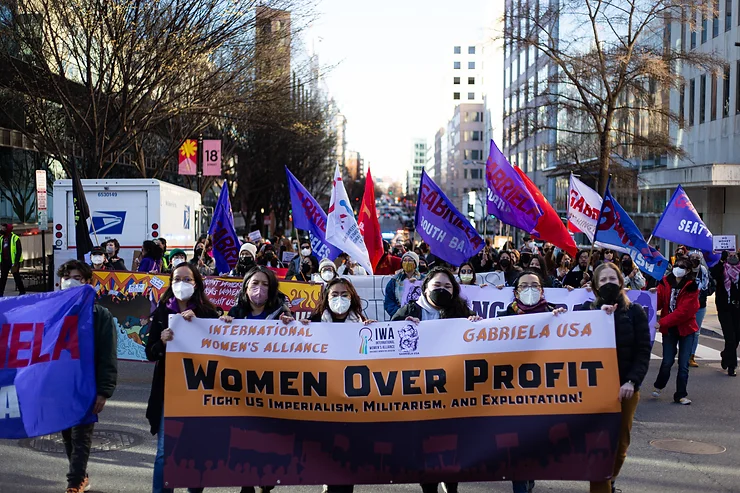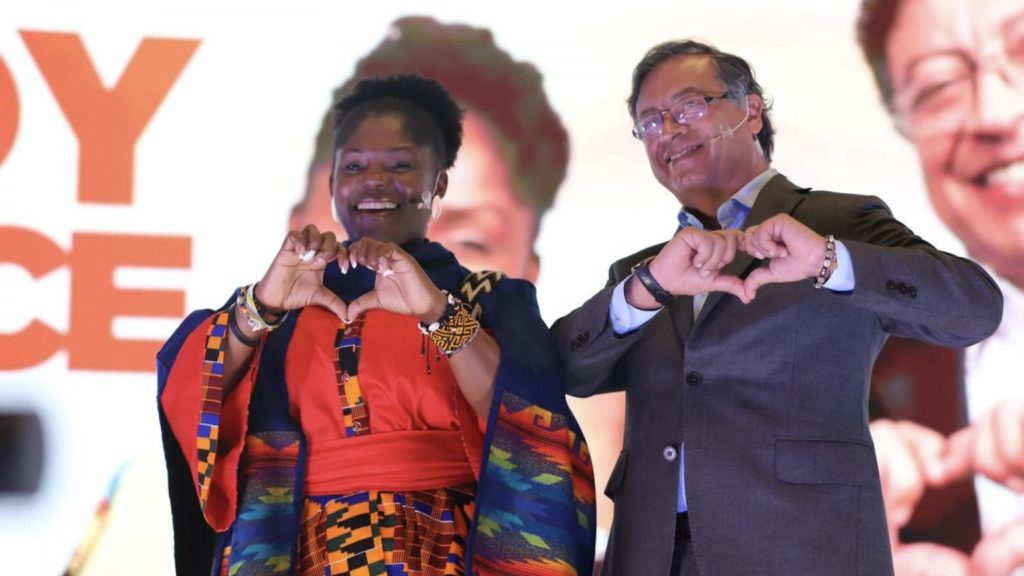
Recent polls indicate left-wing presidential candidate Gustavo Petro and his running mate, Francia Márquez, are the most popular candidates in Colombia. But they appear to fall short of the 50 percent of potential votes required to win the first round of the presidential election on Sunday.
Onlookers say their popularity might explain a surge in death threats against the candidates. The ticket is striking: Petro is a former guerilla-turned-elected-official while Márquez is an award-winning Afro-descendant activist. The pair have inspired people in the country, which has been torn apart by decades of paramilitary violence, partly due to being tied politically, militarily and economically to the United States. Plus, state-sanctioned violence and dozens of deaths at the hands of police during last year’s nation-wide strike remain fresh in the national memory.
The situation has gotten so dangerous, the candidates have been seen at campaign events flanked by bodyguards holding bulletproof shields, as the Washington Post recently reported.
“The U.S. will not be happy with their victory because they will challenge U.S. military ties and ties with NATO,” said Dan Kovalik, professor of international human rights at the University of Pittsburgh School of Law. Such a break could devastate U.S. hegemonic relations in the Western Hemisphere, which the United States has long related to as its “backyard.”
Just a week ago, the United States invited the Colombian defense minister to Washington to announce the country as a “major non-NATO ally.” This comes after $4.5 billion in arms and military training have been poured into Colombia through the United States’ Plan Colombia, which claims to go after the illicit drug trade. However, many activists say small-time farmers have suffered while the flow of drugs have not stopped.
Kovalik pointed to another time a leftist was almost elected. Jorge Eliécer Gaitán was assassinated during his second presidential run in 1948. That set off “La Violencia,” a 10-year period that ended with at least 200,000 people dead.
Meanwhile, six years after peace accords were signed with paramilitary groups, more than 1,000 social leaders have been killed, a statistic that disturbs many activists.
Even with a Petro-Márquez victory, security for the candidates could be dicey after entering office, given how closely linked the paramilitaries, the military and economic elites are in Colombia. A Márquez advisor, Hildebrando Vélez Galeano, told Toward Freedom the campaign had received information paramilitary groups were planning to murder the candidates. He referred to the police and military as “mafia controlled.”
Earlier this month, a military analyst and former colonel was accused of violating the Colombian constitution when he condemned Petro’s candidacy. The constitution bars members of the military from expressing political opinions.
“It’s because of Petro’s commitment to use the power of the state to go after these Uribistas,” said Ajamu Baraka, a campaign advisor. In mentioning Uribistas, Baraka referred to the presidency of Álvaro Uribe, a right-winger who militarized the police and ramped up the war against farmers and activists of Indigenous and Afro-descendant backgrounds. Petro recently mentioned that, if elected, he would hold accountable those who have been threatening his and Márquez’s lives.
Teri Mattson, a U.S. activist who hosts CodePink’s “What the F Is Going On In Latin America and the Caribbean” YouTube show, was denied entrance into Colombia on Sunday to serve as an election observer. She was deported to the United States the following day.
“I would not be surprised if that was orchestrated to say, ‘It’s getting very chaotic and the government will need to suspend the election,'” Mattson told Toward Freedom.
A few other election observers have been denied entrance, too, including Argentinian Alejandro Rusconi.
BREAKING: Official electoral observer @ale_rusconi —invited by the @CNE_COLOMBIA ahead of Sunday's election — has been denied entry to Colombia without explanation. CNE Magistrate @LuisGPerezCasas has said: "This is not good for [Duque's] government, nor for democracy." pic.twitter.com/9zGUyhE2Ge
— Progressive International (@ProgIntl) May 25, 2022
“The people who have sustained war and violence are determined to continue sustaining it at all costs,” said Charo Mina Rojas, a leader in Proceso de Comunidades Negras, an alliance of Afro-descendant organizations in Colombia. She also relayed concern about election fraud and voter intimidation.
Overall, though, the situation looks promising to many onlookers because of the presence of left-wing regional strongholds like Bolivia, Cuba, Nicaragua and Venezuela; as well as many countries boycotting the U.S.-hosted Summit of the Americas; and the political tide recently turning in countries like Honduras and Perú.
“Colombia is the last beachhead the U.S. has in Latin America,” Kovalik said.
Julie Varughese is editor of Toward Freedom. She recently wrote about the historic candidacy of Márquez.

